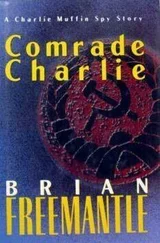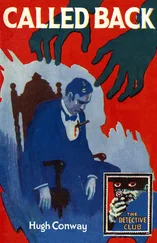Albert Edwards - Comrade Yetta
Здесь есть возможность читать онлайн «Albert Edwards - Comrade Yetta» — ознакомительный отрывок электронной книги совершенно бесплатно, а после прочтения отрывка купить полную версию. В некоторых случаях можно слушать аудио, скачать через торрент в формате fb2 и присутствует краткое содержание. Жанр: foreign_antique, foreign_prose, foreign_sf, на английском языке. Описание произведения, (предисловие) а так же отзывы посетителей доступны на портале библиотеки ЛибКат.
- Название:Comrade Yetta
- Автор:
- Жанр:
- Год:неизвестен
- ISBN:нет данных
- Рейтинг книги:4 / 5. Голосов: 1
-
Избранное:Добавить в избранное
- Отзывы:
-
Ваша оценка:
- 80
- 1
- 2
- 3
- 4
- 5
Comrade Yetta: краткое содержание, описание и аннотация
Предлагаем к чтению аннотацию, описание, краткое содержание или предисловие (зависит от того, что написал сам автор книги «Comrade Yetta»). Если вы не нашли необходимую информацию о книге — напишите в комментариях, мы постараемся отыскать её.
Comrade Yetta — читать онлайн ознакомительный отрывок
Ниже представлен текст книги, разбитый по страницам. Система сохранения места последней прочитанной страницы, позволяет с удобством читать онлайн бесплатно книгу «Comrade Yetta», без необходимости каждый раз заново искать на чём Вы остановились. Поставьте закладку, и сможете в любой момент перейти на страницу, на которой закончили чтение.
Интервал:
Закладка:
Mrs. Weinstein tried to comfort Yetta.
"Don't listen to them," she said. "You are yet young – you'll be all right – "
She stopped abruptly, for the office door had opened and Jake Goldfogle came out. His ear, trained to the chaotic noise of the shop, had caught the momentary halt.
" Ober, mein Gott, wos is der mer? " he roared.
Mrs. Cohen, who had caught up with her work and was waiting for more, pointed an accusing finger at Yetta.
Jake Goldfogle was twenty-eight. This was his first "shop." The dominant expression of his face – which he tried to cover with an assumption of masterliness – was worry. The person who has been ground by poverty is never a debonaire gambler. But these ignorant, unimaginative women who slaved for him, whom he lashed with his tongue and sometimes struck, did not understand his situation, did not know of the myriad nightmares which haunted his waking as well as his sleeping hours. They bent low over their machines, hurrying under the eye of the master, holding their breath to catch the torrent of abuse they expected to hear fall on Yetta.
They did not realize – least of all did Yetta – that she was an exception. Jake swallowed the curses on his tongue and asked her in a constrained and unfamiliar voice what was wrong.
"Nothing," she said. "A pain in my back."
No sort of pain known to women was considered a valid excuse for breaking speed. She wondered with sullen, servile anger how much he would fine her. If any of the women had looked up, they would have seen strange twists on the boss's face. He turned abruptly, without a word, and went back to his office. He sat down at his desk and looked through the little window, by means of which he could, glancing up from his ledger, spy on the roomful of workers. His eyes rested a moment on Yetta's stooped back. Then, grasping his temples, he paced up and down his dingy office, cursing the day he was born. He was in love with Yetta and could not afford to tell her so.
The psychology of the refugees from Russian and Galician Ghettos, who come to live among us, is very hard for us to understand. Above all, the Jew is marked by single-mindedness and consistency of purpose. We have our Anglo-Saxon tradition of compromise and confused issues. We have generally several irons in the fire. We shift easily – often flippantly – from one purpose to another. The Semite, having once accepted a goal is hard to divert.
Coming to us, as most of them do, in abject poverty, it is small wonder that many a Jewish lad decides that the Holy Grail is made of American dollars. The surprising thing is the unswerving fidelity with which they follow the quest – a fidelity which is quite absent in the legends of King Arthur's English Knights. It is the same no matter what ideal they choose. Just as the money grubber will deny himself necessary food and overwork his wife and children to amass a little capital, so the East Side poet will stick to writing rhymes in Yiddish, although it can never give him a decent living, and the Jewish Socialist will hold fast to his principles through starvation and persecution.
Jake Goldfogle had a vague recollection of a great wave which had washed over the steerage deck of an immigrant steamer and had scared him immensely. All his other memories were set in the scenery of the New York slums. He had "got wise" young, with the wisdom of the gutter, which says that you must be either a hammer or an anvil, preyed upon or preying. For the last fifteen years he and his sister, more recently reënforced by her husband, had been engaged in a desperate struggle to pull up out of the muck.
For years the three of them had been slaves to the machine. Six months before they had put all their miserable savings, all their credit, into buying this "shop." They had accepted a highly speculative contract from which there could be no halfway issue. A dozen weeks more and it would be over – either an immense success or utter ruin. Failure meant the swallowing up in a moment of the results of their long slavery; it meant going back to the machine.
Hundreds of men throughout the city, in the different garment trades, were in exactly the same position. Ground between the gambling nature of their contracts and insufficiently secured credit, the fear of ruin in their hearts, they had been driving the rowels deeper and deeper into the flanks of the animals who worked for them – on whose backs they hoped to win to the gilded goal of success. But revolt from such conditions was inevitable. Strikes were constantly occurring. This fear was the worst of Jake Goldfogle's nightmares.
The revolt of the garment workers was as yet unorganized and chaotic. There were a dozen odd unions, but few of them were strong or well disciplined. Too many of those in the trade were immigrants from southeastern Europe and the Russian Pale – where only a few of the men are literate. Most of them were women – mothers. When the long hours in the shops were over, they hurried home to their children. It was very hard to get them to meetings.
But in spite of all these handicaps the workers were gradually organizing. Such strikes as had already occurred had had little effect except to ruin the smaller bosses. The large manufacturers could afford to wait until their "hands" were starved back to the machines. But so close was the contest, – it mattered little whether the trade was vests or shirtwaists or overalls, – that a few days' interruption was enough to ruin the weaker bosses. The small fry, like Jake, echoed the sentiments of Le Grand Monarque – The Deluge might come after, if only they could speed their contracts to completion. And so, with ever increasing viciousness, the rowels were driven deeper and deeper.
It had been a surprising sensation to Jake Goldfogle to discover that it was more pleasant to look through his spying window at the curve of Yetta's neck and the wild little curls of rich brown hair that clustered about it than to add up columns of figures. Even the unhealthy, stooped curve of her spine as she leaned forward to the machine seemed gracious to him. He looked forward eagerly to the times, every half hour, when he went out into the shop on a tour of inspection, for then he could catch glimpses of her face. To be sure she never looked up from her work while he was watching. But there was one place where he could stand unnoticed and see her in profile. It was a marvellously regular face for the East Side. The dark curve of her eyebrows was perfect, and sometimes he could catch the gleam of her eyes. The skin of her throat was whiter even than Mrs. Weinstein's. She was a trifle thinner than Jake's ideal – but he told himself she would fill out. All this added color to his dream of success, a deeper shade to his fear of ruin.
A man of another race would probably have lost his head and asked her to marry him. But Jake had a deep-seated habit of planning for success. Long before he had noticed the grace of her body and face he had realized that she was the best worker in his shop, "the pace-maker" for the whole establishment. If success was to be won, it would be by just that very narrow margin, which the breaking in of a new "speeder" would jeopardize. So he had tried to put her out of his mind till the "rush season" was over. Intent on his main purpose he had not thought of her physical well-being. She was young and healthy looking. It had not occurred to him that a few weeks more or less would matter. The pain in her back surprised him.
If the incident had occurred in the morning, he might have called her into his office then and there and asked her to marry him. Things had looked brighter in the morning. But at lunch – a frugal affair, two sweet buns and a glass of tea – he had heard disquieting talk of the "skirt-finishers" strike. It had been more serious than most. Half a dozen shops had been already wiped out. And his informant – a hated competitor – had gloomily foretold trouble in their own trade. If strikes broke out among the "vest-makers," it would tighten credit. The call of a couple of loans would be the end of Jake. No! He could not afford to take Yetta out now. Any one who came to take her place might be infected with the virus of Unionism. His own women did not know what a strike was. No. He could not risk it. If Pincus & Company paid promptly on the next delivery, he could take up those dangerous loans and then – perhaps —
Читать дальшеИнтервал:
Закладка:
Похожие книги на «Comrade Yetta»
Представляем Вашему вниманию похожие книги на «Comrade Yetta» списком для выбора. Мы отобрали схожую по названию и смыслу литературу в надежде предоставить читателям больше вариантов отыскать новые, интересные, ещё непрочитанные произведения.
Обсуждение, отзывы о книге «Comrade Yetta» и просто собственные мнения читателей. Оставьте ваши комментарии, напишите, что Вы думаете о произведении, его смысле или главных героях. Укажите что конкретно понравилось, а что нет, и почему Вы так считаете.












